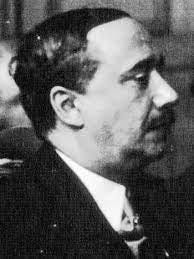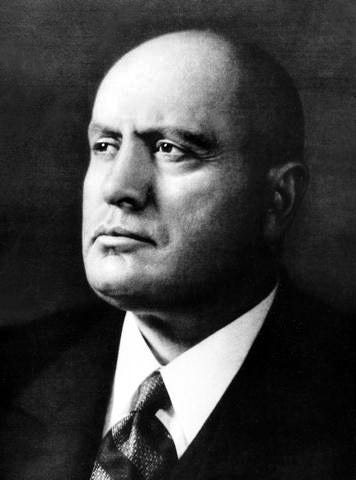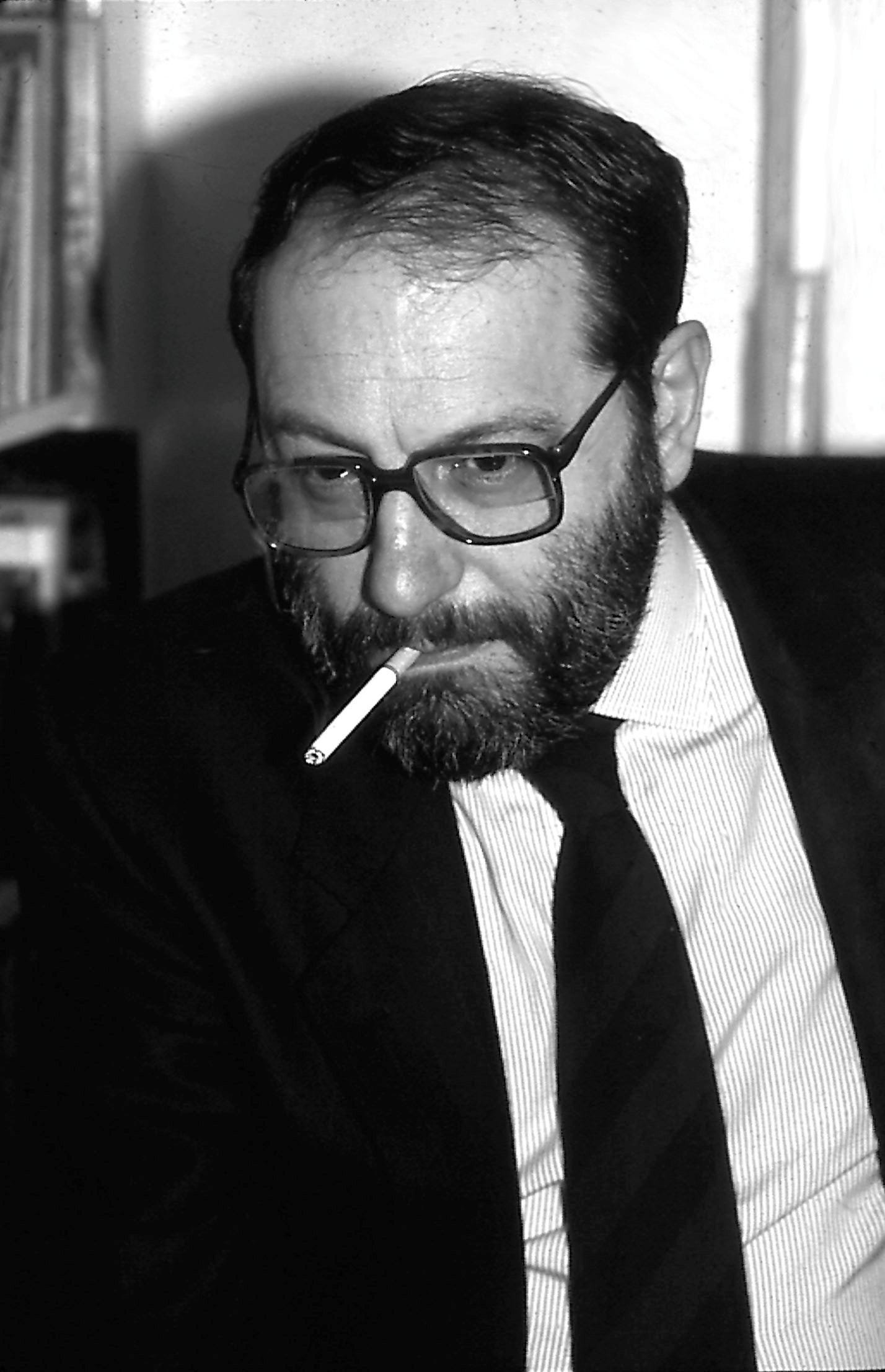What is fascism?
Thinking through the roots and definitions
Is Vladimir Putin a fascist? Is China fascist? Is my neighbor who supports mandatory Covid vaccinations a fascist? What is fascism?
Robert Reich, professor of public policy at UC Berkeley, released a video this week titled, “Is Donald Trump a Fascist?”
Reich lists five elements that define fascism.
Rejecting democracy for a populist strongman
Stoking rage against elites for displacing regular people
Nationalism based on “superior” race, religion etc
Praising heroic warriors and ruling not with armies but with organized bullying
Misogyny and queerphobia
Reich concludes Trump is a fascist whose “uniquely American version of fascism is rooted largely in White Christian Nationalism.”
I think it’s more accurate to call Trump a right-wing populist but Reich is correct that we should pay attention to the ways in which Trump does fit the definition.
We should do so with all political movements such as by considering how the far-left stokes rage against elites in the name of displaced people, praises heroic warriors such as Vladimir Lenin and enforces beliefs through organized bullying.
One might object that the far-left does not qualify because of the fifth item on Reich’s list, among other things, but even on the left there are examples violent misogyny.
So what is fascism? The word itself comes from the Italian fascio, or “bundle of sticks,” referring to the ancient Roman fasces, a bundle tied around an axe that represented the authority of elected magistrates and strength through unity. It’s an apt symbol since fascism depends on violence and collectivism.
The violent aspect probably began with the 1908 book Reflections on Violence, in which French Marxist Georges Sorel argued that political violence is justified in the fight against capitalism.
When the Russian Revolution took place in 1917, Sorel praised the violence and wrote in Soviet Russia magazine that Lenin was “the greatest theoretician of Socialism since Marx and a statesman whose genius recalls that of Peter the Great.”
Sorel celebrated the Bolsheviks in numerous Italian newspapers and some have even argued that Sorel rather than Marx was the true ideological ancestor to Lenin.
When Sorel died, the Italian fascist review Gerarchia published an essay in his honor. The review was edited by Benito Mussolini and Sorelian syndicalist Agostino Lanzillo. Syndicalism, by the way, aims to transfer the means of production to unionized workers through strikes while Sorelianism, named after Sorel, himself a syndicalist, is the Marxist belief that workers will triumph through revolutionary violence.
A unique feature of Sorelianism is its use of mythology to inspire revolutionary spirit, much as the Nazis used Nordic and Hindu mythology.
No wonder then that Sorelianism is considered a precursor to fascism.
One of Sorel’s friends was the syndicalist Georges Valois, who in 1925 created the first pro-Mussolini French party—the first fascist party outside Italy—named the Fasces.
Today, we think of communists and fascists as being on opposite ends of the political spectrum but this would have made little sense to the founders of fascism. Valois himself traced fascism back to the Jacobins, the leftist radicals who during the French Revolution led the Reign of Terror by beheading anyone who wasn’t sufficiently woke.
Further, one Fasces member was none other than Hubert Lagardelle, founder of the French journal The Socialist Movement, co-founded by Karl Marx’s grandson Jean Longuet.
The Fasces later ran out of money so Valois founded the Republican Syndicalist Party, whose members included the neo-Jacobin Charles Albert. The party published essays by neo-socialist Marcel Déat, communist Edouard Berth and socialist Pierre Mendès France, who was later prime minister of France for eight whole months.
In 1935, Valois tried to join the French Section of the Workers’ International, the predecessor to France’s modern Socialist Party. He had the backing of militant socialist Marceau Pivert but was not accepted. He was later captured by Nazis and sent to the Bergen-Belsen concentration camp where he died of typhus.
The point is, all these guys saw themselves as socialists who favored the use of political violence. But some felt this violence should come from the bottom up while others felt the revolution should come from the top down. In other words, it was a difference between violence by the people and violence by the government.
In his 1989 paper “Fascism and the French Revolution,” the Nazi scholar George Mosse explains how fascism evolved as a reorientation of French revolutionary politics. Early fascists saw the success of the Russian Revolution and realized true power was not with the military but with the people, so instead of expounding on the value of tradition they started screaming about the need for revolutionary change. And it worked.
When the Bolsheviks seized power in Russia in 1917, Mussolini, the founder of fascism, was amazed. In his 2004 book Mussolini, Luton University history professor Peter Neville writes:
Mussolini welcomed the revolution in Russia — he had after all expected the war to bring about revolution in his own country — but he was unimpressed by Lenin, whom he regarded as just a new version of Tsar Nicholas.
Mussolini felt Lenin was not revolutionary enough, but he saw an opportunity to attack the left for political gain.
The war brought about a polarization of Italian politics between the patriotic Right and the Left. Mussolini and his supporters were able to demonize the Left for being unpatriotic, and he also soon realized the potential of anti-Bolshevik propaganda which focused on the threat to Italian life from Russian-inspired communism.
In his 1932 essay “The Doctrine of Fascism,” Mussolini defines the movement:
If the 19th century were the century of the individual […] we are free to believe that this is the ‘collective’ century, and therefore the century of the State.
Identity politics is a modern example of the individual being replaced by the collective, and again, if it’s bottom-up we call it socialism but if it’s top-down we call it fascism.
Another aspect of fascism we see today is the politicization of everything. This is what Mussolini means when he talks about fascism being totalitarian. Not that the government has total power but that the ideology seeps into every aspect of life:
Fascism is totalitarian, and the Fascist State — a synthesis and a unit inclusive of all values — interprets, develops, and potentiates the whole life of a people. Fascism besides being a system of government is also, and above all, a system of thought.
Here, one might be reminded of modern American life. Or perhaps China.
Another useful phrase is “revolutionary nationalism,” an umbrella term that encompasses the French and Russian revolutions as well as Nazism. The difference is, French revolutionary nationalism imposed a common national identity on everyone, regardless of ethnicity, religion or anything else. Fascist revolutionary nationalism takes a single group’s identity and claims it as the national identity, then goes about purging non-members by exile or death.
These concepts get at the deeper distinctions between fascism and movements such as communism, as opposed to simply trying to distinguish them along the left-right spectrum according to differing levels of authoritarianism, because both have authoritarian tendencies. Some try to resolve this by referencing horseshoe theory while others use the political compass.
Before I leave you, let me add one more definition that I found interesting, simply because much of it reminds me of events today. In his 1995 essay “Ur-Fascism,” cultural theorist Umberto Eco lists 14 aspects of fascism, including the following:
Rejection of modernism and Enlightenment values
Criticizing one’s culture for the sake of criticism
Regarding disagreement as treason
Fear of difference as in racism or anti-immigration attitudes
Believing peace-making is collaboration with the enemy
Newspeak or promoting the use of PC language
There are half a dozen other definitions of fascism by half a dozen other academics. I just wanted to give you a taste of some of the best ones. You can make up your own mind. But here is how I would define fascism.
The main thing about fascism is that it is a populist movement that seeks the participation of all. Mass mobilization. Think of China’s recent anti-espionage law that asks all citizens to take part. Or the Hitler Youth.
Fascism is also a movement that seeks revolutionary change through government power rather than through the power of the people. So even though it may share certain traits with the far-left, it deploys power in the opposite direction.
Finally, fascism imposes the identity of a single group as the national identity rather than imposing a single national identity on all groups. So while fascism and communism both have racist elements, they come from different places—fascism forces people out of the in-group while communism forces them in, each destroying them in the process.
There are other features of fascism beyond these three, many of which are listed above, but populist mass mobilization, government-led revolution and exclusionary identity politics are the main pillars. This is why I would argue that China is fascist but Trump is not. He doesn’t seek mass mobilization. He doesn’t need his enemies to be the enemies of every American because he doesn’t care what Democrats think. And he aims to erode rather than reinforce state power.
This is also why I don’t think far-left wokism is fascist, although it does share some disturbing traits with fascist thinking.
In the end, it is not so much the what of fascism but the how. Or as Jean-Paul Sartre put it, “Fascism is not defined by the number of its victims, but by the way it kills them.”








What I like about about David Volodzko is that he is fair and nuanced. This article is an example of that. Facism, totalitarianism, manipulation, and control are abundant on both sides.
Robert Reisch is not fair or nuanced. He is just another shill for power for the Left. One could certainly go through comments and behaviors of most politicians on both sides to find enough to indict them on Fascist qualities. Granted that Trump's undisciplined bombastic persona makes it easy for them to scream.
I agree with Vlad the Inhaler's comment except where he blames only Trump for the idiotic effect he has had on politics. I believe that this is mostly the Democrats' fault. If they had only let him just be President, as the opposition historically has done. Realistically, he didn't have that much power because he had little support from his own side in Congress and no support from the Democrats. The amount of sheer power plays and hysteria created by the Democrats has created a living hell for us political addicts! And the amount of hate and neuroses created is literally hurting people and the country.
"I would argue that China is fascist but Trump is not." Thanks again, David, for your nuanced analysis.
One of the things I find so frustrating about the "Is Trump a fascist" discourse is that the answer is so obvious: no, of course Trump isn't a fascist, because in order to be a fascist he'd need to have SOME sort of ideology or political philosophy, and he palpably does not. Trump is a narcissist; he seeks political power solely for the attention and affirmation. He's a gifted enough politician to have realized--I think intuitively rather than consciously--that the easiest way for him to earn that affirmation from the public is to position himself as responding to, and righting, several of the sorts of populist discontents that traditionally DO get used by fascists. But just because he's using fascist political tricks doesn't mean that he, himself, is one.
This is by no means meant as a defense of the man, by the way; I can't stand him as a person or a politician, and I loathe the truly idiotic effect he's had on American politics for the last decade or so. One of those effects has been on the fascism discourse: while America has always had people willing accuse anyone to the right of FDR of "fascism," the current discourse tends to treat that kind of accusation as much more interesting and meaningful than it actually is.